Hard Acrylic Night Guard
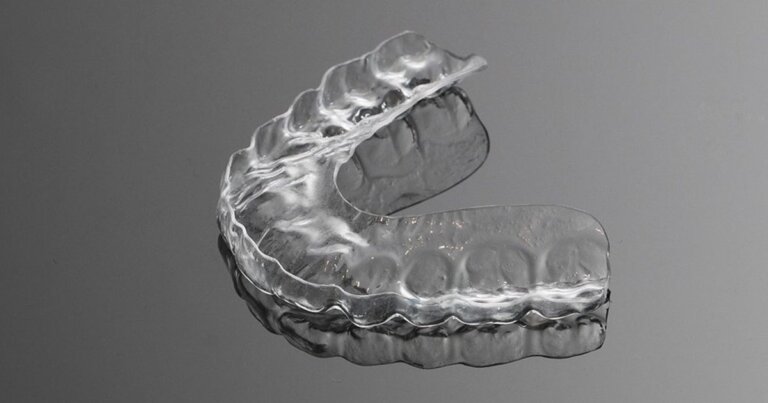
What Is A Hard Acrylic Night Guard?
A Hard Acrylic Night Guard is a type of night guard dental appliance made from a rigid material designed to protect teeth from grinding and clenching during sleep. It offers a durable and strong barrier against bruxism and is custom-fitted to the individual’s teeth for optimal effectiveness and comfort. Unlike soft night guards, which are made from flexible materials, hard acrylic night guards provide a sturdier solution, making them suitable for individuals with more severe cases of bruxism. Before deciding on whether A Hard Acrylic Night Guard are right for you, there are some things you should know:
- Who Needs A Hard Acrylic Night Guard?
- What Are The Advantages Of A Hard Acrylic Night Guard?
- What Are Alternative Types Of Night Guards?
- How Much Does A Hard Acrylic Night Guard Cost?
- What Are The Steps In The Hard Acrylic Night Guard Procedure?
- Can I Have A Hard Acrylic Night Guard If I Am Pregnant?
- How Long Does A Hard Acrylic Night Guard Last?
- What Are Common Problems with A Hard Acrylic Night Guard?
If you have any further questions about A Hard Acrylic Night Guard or other dental services offered at Atlas Dental, please contact us.

Free phone consultation
Have questions about night guards? Schedule a free phone consultation with our Toronto dentist

5 star google reviews
Our patients love our mouth guards! See why people are choosing Atlas Dental

BOOK A NIGHT GUARD APPOINTMENT ONLINE
We use the latest in 3D scanning and 3D printing technology to make you the right mouth guard
Who Needs A Hard Acrylic Night Guard?
Bruxism, or teeth grinding and clenching during sleep, can affect people of all ages and backgrounds. While occasional teeth grinding may not cause significant issues, chronic bruxism can lead to various dental problems and discomfort. If you experience any of the following signs or symptoms, a Hard Acrylic Night Guard could be beneficial for you:
- Teeth Grinding or Clenching: If you wake up with a sore jaw, tooth sensitivity, or notice signs of teeth grinding, such as worn-down teeth or chipped enamel, a Hard Acrylic Night Guard can provide a protective barrier between your upper and lower teeth, minimizing the effects of grinding and clenching.
- Headaches or Facial Pain: Bruxism can lead to tension headaches and facial pain due to the constant strain on jaw muscles. A Hard Acrylic Night Guard can help relax the jaw and reduce the intensity and frequency of headaches.
- Tension in the Neck and Shoulders: The excessive pressure on the jaw from grinding or clenching can extend to the neck and shoulder muscles, causing tension and discomfort. A Hard Acrylic Night Guard can help relieve this strain and promote muscle relaxation.
- Sleep Disruptions: Bruxism can disrupt your sleep and that of your sleeping partner due to the grinding sounds. A Hard Acrylic Night Guard acts as a cushion to muffle these noises, allowing both you and your partner to enjoy a more restful night’s sleep.
- TMJ Disorders: Temporomandibular joint (TMJ) disorders are often associated with bruxism. A Hard Acrylic Night Guard can help alleviate the stress on the TMJ and provide relief from associated symptoms, such as jaw clicking, limited jaw movement, and pain.
- Anxiety and Stress: Bruxism is sometimes linked to stress and anxiety. If you tend to clench or grind your teeth during stressful periods, using a Hard Acrylic Night Guard can help protect your teeth and reduce tension-related bruxism.
- Dental Work Protection: If you have dental restorations like dental crowns, dental veneers, or dental implants, a Hard Acrylic Night Guard can act as a cushion, protecting these dental works from damage caused by grinding or clenching.
It is essential to consult with your dentist if you suspect you have bruxism or experience any of the above symptoms. Your dentist can examine your teeth, evaluate the extent of bruxism, and recommend the most suitable type of night guard for your specific needs. If you have further questions about Hard Acrylic Night Guards, please contact us.
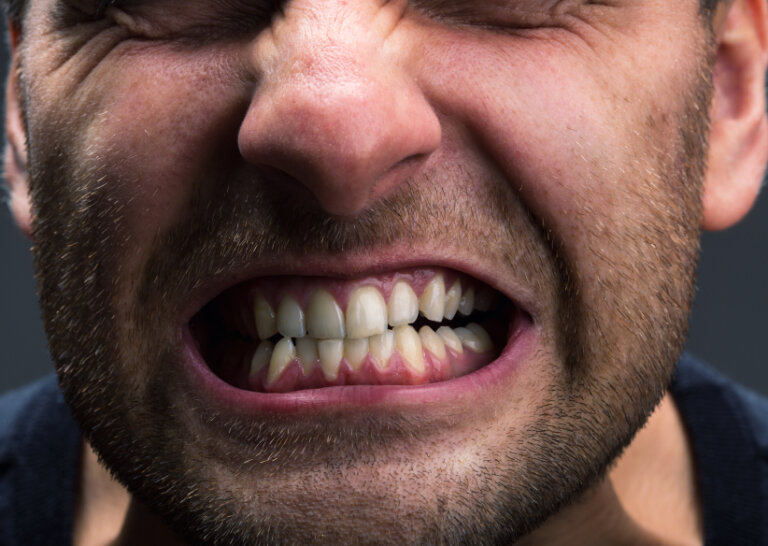
What Are The Advantages Of A Hard Acrylic Night Guard?
Hard Acrylic Night Guards offer several distinct advantages over other night guards, making them an appealing option for individuals seeking relief from bruxism and related symptoms. Here are some key advantages of choosing a Hard Acrylic Night Guard:
- Durable Protection: Hard acrylic night guards offer strong and durable protection against teeth grinding and clenching during sleep. The rigid material can withstand the forces of bruxism, making it suitable for individuals with severe grinding habits.
- Custom-Fitted: Each hard acrylic night guard is custom-made to fit the individual’s teeth precisely. This personalized fit ensures maximum coverage and effectiveness in preventing direct contact between the upper and lower teeth.
- Longevity: Hard acrylic night guards have a longer lifespan compared to softer alternatives. With proper care and maintenance, they can last for several years, making them a cost-effective choice in the long run.
- Minimal Discomfort: The smooth and rigid surface of the hard acrylic night guard minimizes discomfort and irritation in the mouth. Once the individual gets used to wearing it, any initial discomfort typically subsides.
- Optimal Protection: Due to its firm structure, a hard acrylic night guard offers exceptional protection for dental restorations such as dental crowns, dental bridges, and dental veneers. It helps prevent damage to these dental works caused by teeth grinding.
- Easy to Clean: Cleaning a hard acrylic night guard is straightforward. It can be easily rinsed and brushed with toothpaste to maintain its hygiene and prevent bacteria buildup.
- Resists Wear and Tear: The durable nature of the hard acrylic material allows the night guard to resist wear and tear over time, maintaining its protective qualities for an extended period.
- Versatility: Hard acrylic night guards can be used for both upper and lower teeth, providing versatility in addressing various cases of bruxism.
- Effective for Severe Bruxism: Individuals with severe teeth grinding or clenching habits can benefit from the robust protection provided by a hard acrylic night guard.
- Promotes Better Sleep: By reducing the effects of bruxism, a hard acrylic night guard can help improve sleep quality, reduce headaches, jaw pain, and muscle tension associated with teeth grinding.
Despite these numerous advantages, it’s essential to remember that the effectiveness of a Hard Acrylic Night Guard depends on its proper usage and maintenance. If you have further questions about Hard Acrylic Night Guards, please contact us.
What Are Alternative Types Of Night Guards?
If a hard night guard doesn’t seem like the ideal option for you or if your dentist recommends exploring other alternatives, there are several other treatments available to address bruxism and its associated symptoms. Some common alternatives to a hard night guard include:
- Soft Night Guards: Soft night guards, also known as “boil-and-bite” night guards, are made from a pliable material that softens when immersed in hot water. After softening, you place the night guard in your mouth and bite down gently to create a customized fit. These guards are readily available over-the-counter and are more affordable than custom-fitted options. However, they may not offer the same level of protection and durability as custom night guards.
- Dual-Laminate Night Guards: Dual-laminate night guards provide a combination of soft and hard materials. They have a soft inner layer for comfort and a hard outer layer for durability and protection. The soft layer conforms to your teeth, while the hard layer resists wear from teeth grinding. These guards are often used for individuals with moderate to severe bruxism.
- NTI Night Guard: Specifically approved by the FDA, the Nociceptive Trigeminal Inhibition Tension Suppression System (NTI-tss) is a unique night guard. Unlike traditional options, the NTI device is smaller, fitting over the front teeth to prevent contact between upper and lower teeth. Tailored for managing bruxism, migraines, and TMJ disorders, the NTI Night Guard provides targeted protection.
It’s important to note that while over-the-counter night guards may offer a quick and affordable solution, custom-fitted night guards are generally recommended for the best results. Custom night guards ensure optimal fit, comfort, and protection, as they are designed to suit your specific needs and provide maximum coverage. For more information about the different type of night guards available, please contact us.
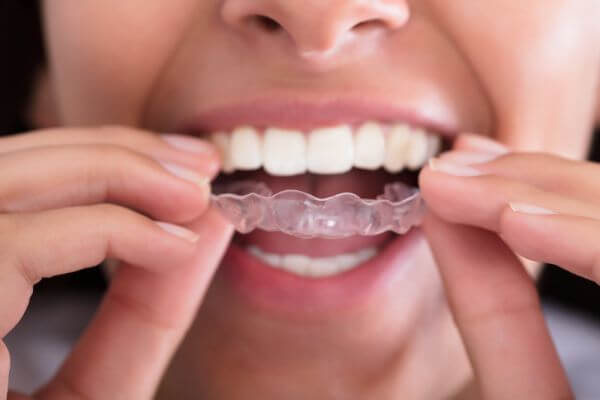
Cost of Night Guard
Our Dental Night Guards protect your teeth from bruxism and teeth clenching and are made using the latest optical 3D scanning and 3D printing technology. A common question is how much a dental night guard costs. For a typical mouth guard, you can expect to pay $399 plus Lab Fee ($200). The codes relevant to night guards in the Ontario Dental Association’s Suggested Fee Guide appear as follows:
- 14611 – Maxillary Appliance: $399 + Dental Lab Fee ($200)
- 14612 – Mandibular Appliance: $399 + Dental Lab Fee ($200)
Night Guards are considered a basic service under all dental insurance plans and should be covered to your maximum insurable limit, but be sure to find out from your dental insurance plan provider how much you are eligible for before going ahead with dental treatment. Our fees are consistent with the ODA Fee Guide.
For patients without dental insurance, Atlas Dental is pleased to offer dental financing through Dentalcard. Affordable payment plans start at 7.95% for terms of 6 months to 6 years. To learn more about Dentalcard dental treatment financing, follow this link.
What Are The Steps In The Hard Acrylic Night Guard Procedure?
Getting a Hard Acrylic Night Guard involves a straightforward procedure that typically requires two primary steps: dental examination and custom fitting. Below are the detailed steps involved in obtaining a Hard Acrylic Night Guard:
- Consultation: Schedule an appointment with your dentist to discuss your symptoms, concerns, and the possibility of bruxism. Please review these pre-visit instructions before your appointment. During the consultation, your dentist will ask about your dental history, sleep habits, and any signs of teeth grinding or clenching you may have noticed.
- Oral Examination: Your dentist will perform a thorough examination of your teeth, jaw, and oral structures to check for signs of bruxism. They may look for worn-down tooth surfaces, dental abnormalities, and any potential issues related to teeth grinding.
- Impressions: If your dentist determines that a Hard Acrylic Night Guard is suitable for you, they will take impressions of your teeth using a dental putty or digital scanning. These impressions will serve as a mold to create a night guard that fits your unique dental anatomy accurately. Night guards can be made for your upper jaw or lower jaw, so please specify with your dentist.
- Hard Acrylic Night Guard Fabrication: The dental impressions are sent to a dental laboratory, where a skilled technician crafts your Hard Acrylic Night Guard. The guard is typically made from a soft, flexible material, such as silicone or polyurethane, based on the specifications provided by your dentist.
- Fitting Appointment: Once the Hard Acrylic Night Guard is ready, you will return to your dentist’s office for a fitting appointment. Your dentist will ensure that the night guard fits snugly and comfortably over your teeth and that it provides sufficient coverage and protection against teeth grinding and clenching. If any adjustments are needed to improve the fit or comfort of the night guard, your dentist will make the necessary modifications during the fitting appointment.
- Instructions and Care: Your dentist will provide detailed post-insertion instructions on how to use and care for your Hard Acrylic Night Guard properly. They may advise you to wear the night guard during sleep, and they will explain how to clean and store the appliance to maintain its hygiene and longevity.
- Regular Check-ups: It is essential to attend regular dental check-ups, during which your dentist will assess the effectiveness of the Hard Acrylic Night Guard and monitor any changes in your condition.
By following these steps and working closely with your dentist, you can obtain a well-fitted Hard Acrylic Night Guard that provides effective relief from bruxism, promotes better sleep, and safeguards your dental health. If you have further questions about Hard Acrylic Night Guards, please contact us.
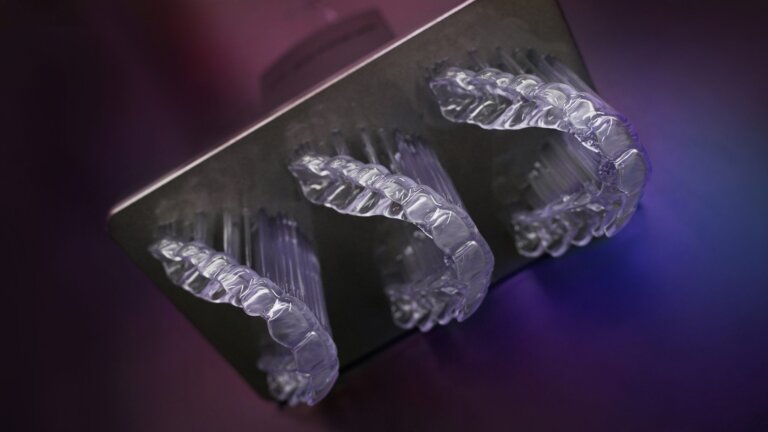
Can I Have A Hard Acrylic Night Guard If I Am Pregnant?
Pregnancy is a special time that requires extra care and consideration when it comes to healthcare choices. If you are pregnant and experiencing symptoms of bruxism, you may wonder whether it is safe to use a Hard Acrylic Night Guard. The good news is that Hard Acrylic Night Guards are generally considered safe during pregnancy, but there are some essential factors to consider:
- Consult with Your Healthcare Provider: Before using any oral appliance or dental treatment during pregnancy, it’s crucial to consult with your obstetrician or healthcare provider. They will assess your overall health and pregnancy status to ensure that using a Hard Acrylic Night Guard does not pose any risks to you or your baby.
- Inform Your Dentist: If you are pregnant or planning to become pregnant, inform your dentist during your dental examination or consultation. Your dentist can take your pregnancy into account when recommending treatment options and ensure that any dental procedures are safe for you and your baby.
- Use BPA-Free Materials: Hard Acrylic Night Guards made from certain materials may contain bisphenol-A (BPA), a chemical that some studies have associated with potential health risks. To minimize any potential exposure to BPA, ask your dentist for a Hard Acrylic Night Guard made from BPA-free materials.
- Proper Oral Hygiene: Pregnancy can lead to increased sensitivity and changes in the oral cavity. Maintain proper oral hygiene practices during pregnancy, including regular brushing, flossing, and dental check-ups to ensure your dental health is well-maintained.
- Monitor Your Symptoms: If you experience any changes in your bruxism symptoms during pregnancy, such as increased grinding or clenching, inform your dentist or healthcare provider. They can reassess your condition and adjust the treatment plan accordingly.
While Hard Acrylic Night Guards are generally safe for pregnant individuals, every pregnancy is unique, and individual health factors should be considered. Always prioritize open communication with both your dentist and healthcare provider to make informed decisions about your dental health and overall well-being during pregnancy. If you have further questions about Hard Acrylic Night Guards, please contact us.
How Long Does A Hard Acrylic Night Guard Last?
The lifespan of a Hard Acrylic Night Guard can vary depending on several factors, including the frequency of use, the severity of bruxism, and how well it is maintained. On average, a well-cared-for Hard Acrylic Night Guard can last anywhere from 6 months to 2 years or more. Here are some key factors that can influence the longevity of your Hard Acrylic Night Guard:
- Frequency of Use: The more frequently you use your Hard Acrylic Night Guard, the faster it may wear down. If you wear it every night, it may show signs of wear sooner than if you only wear it occasionally.
- Bruxism Severity: Individuals with severe bruxism may exert more pressure on their night guard, causing it to wear down more quickly compared to those with milder cases.
- Quality of Materials: The quality of the Hard Acrylic Night Guard’s materials plays a significant role in its durability. High-quality, well-crafted night guards are likely to last longer than cheaper, less durable alternatives.
- Oral Care: Proper oral care and maintenance can extend the life of your night guard. Regularly cleaning the night guard as instructed by your dentist and storing it properly when not in use can help preserve its integrity.
It’s essential to regularly inspect your Hard Acrylic Night Guard for signs of wear or damage. Consider replacing your night guard if you notice any of the following:
- Visible Wear: Check for signs of thinning or significant wear on the surface of the night guard, especially in areas where your teeth make contact.
- Cracks or Tears: Any cracks or tears in the night guard material can compromise its effectiveness and comfort.
- Changes in Fit: If your night guard starts feeling loose or no longer fits snugly against your teeth, it may not provide adequate protection.
- Unpleasant Odor: An unpleasant odor even after thorough cleaning may indicate that the night guard has accumulated bacteria and needs replacement.
- Discoloration: Severe discoloration or stains on the night guard may indicate wear and the need for a new one.
Remember to discuss the condition of your Hard Acrylic Night Guard with your dentist during regular dental check-ups. Your dentist can assess its wear and advise you on when to replace it to ensure continued effectiveness in protecting your teeth and managing bruxism. If you have further questions about Hard Acrylic Night Guards, please contact us.
What Are Common Problems with A Hard Acrylic Night Guard?
While Hard Acrylic Night Guards are generally comfortable and effective in managing bruxism, they may encounter some common problems or issues. Being aware of these potential challenges can help you address them promptly and ensure optimal use of your Hard Acrylic Night Guard. Here are some common problems that individuals may experience with a Hard Acrylic Night Guard:
- Discomfort or Irritation: Some individuals may experience initial discomfort or irritation when using a Hard Acrylic Night Guard. This could be due to the newness of the appliance in your mouth. However, if the discomfort persists, it may be necessary to have the night guard adjusted or refitted by your dentist.
- Difficulty Speaking: A Hard Acrylic Night Guard might temporarily affect your speech when you first start using it. This is normal as your mouth adjusts to the presence of the night guard. With practice, your speech will likely improve, and you will become more accustomed to speaking while wearing it.
- Night Guard Not Staying in Place: If your night guard does not stay securely in place over your teeth, it may not effectively protect against teeth grinding. Your dentist can help adjust the fit of the night guard to ensure it stays firmly in place during sleep.
- Excessive Salivation: Some individuals may experience increased salivation when using a Hard Acrylic Night Guard. This is a temporary issue and should subside as you become accustomed to wearing the night guard during sleep.
- Allergic Reactions: While rare, some individuals may experience allergic reactions to the materials used in the night guard. If you notice any signs of irritation, redness, or swelling, discontinue use and consult your dentist.
- Difficulty Breathing: In very rare cases, a Hard Acrylic Night Guard may cause difficulty breathing for some individuals. If you experience breathing difficulties while wearing the night guard, discontinue use and consult your dentist immediately.
If you experience any of these problems or have concerns about your Hard Acrylic Night Guard, don’t hesitate to reach out to your dentist. Regular communication with your dental provider will help address any issues promptly, ensuring that your Hard Acrylic Night Guard continues to protect your teeth effectively and improves your overall sleep quality. If you have further questions about Hard Acrylic Night Guards, please contact us.
We also think you’ll like…
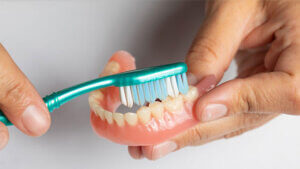
How to Keep Removable Oral Appliances Clean
How to Keep Removable Oral Appliances Clean Removable oral appliances like dentures, retainers, or nightguards play a crucial role in our oral health, whether they’re
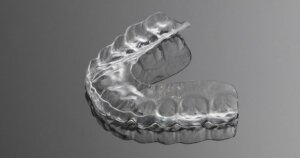
Dental Night Guard Post-Insertion Instructions
Dental Night Guard Post-Insertion Instructions What You Should Do After Receiving Your Custom Fitted Dental Night Guard While night guards won’t prevent these habits, they
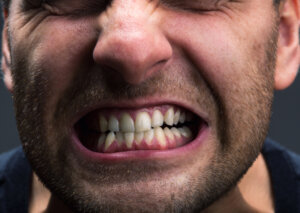
Teeth Clenching
Teeth Clenching What Is Teeth Clenching? Teeth clenching, also known as jaw clenching, is a common condition that involves the involuntary tightening of the muscles
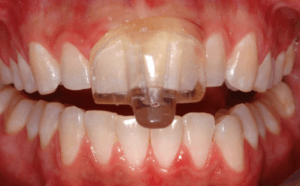
NTI Night Guard
NTI Night Guard What Is An NTI Night Guard? Do you often wake up with headaches, jaw pain, or notice signs of teeth grinding? If

Dentists see pandemic stress in patients with more teeth grinding, bruxism, damaged teeth
Dentists see more teeth grinding pandemic stress in patients Teeth Grinding Caused By COVID-19 Anxiety Has the COVID-19 pandemic been causing you stress? So much

Bruxism
Bruxism What Is Bruxism/Teeth Grinding? Bruxism, also known as teeth grinding, is a condition that affects millions of people worldwide. It is a disorder in

